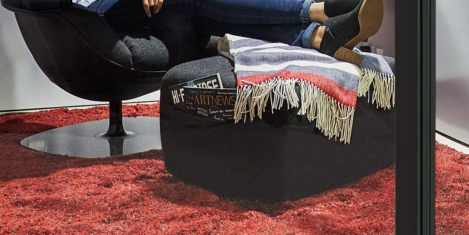February 7, 2019
Sleeping on the job: the cultures of sleep and napping from around the world
 There’s a pretty well proven link between lack of sleep and negative emotion, but is catching 40 winks whilst at work a proven solution? Research from the National Sleep Foundation (NSF) suggests that lack of sleep can have a negative impact on emotion. Could naps of 20-30 minutes make for a more productive workforce, and have a positive impact on mood, concentration and attention? Following the findings that loss of sleep could be costing the UK £40bn a year, is it time to make a change to our sleeping habits? To find out, Brother has produced a study of the eight sleeping customs from around the world, and explored how they could have a positive impact on people and businesses.
There’s a pretty well proven link between lack of sleep and negative emotion, but is catching 40 winks whilst at work a proven solution? Research from the National Sleep Foundation (NSF) suggests that lack of sleep can have a negative impact on emotion. Could naps of 20-30 minutes make for a more productive workforce, and have a positive impact on mood, concentration and attention? Following the findings that loss of sleep could be costing the UK £40bn a year, is it time to make a change to our sleeping habits? To find out, Brother has produced a study of the eight sleeping customs from around the world, and explored how they could have a positive impact on people and businesses.











 One year on from #MeToo – just one in four workers agree that international media coverage has helped to improve their workplace culture, according to new research on sexual harassment from Acas. The workplace experts commissioned the study from YouGov to find out whether media reporting on #MeToo and high-profile celebrity cases have had any effect on British workplaces. Only a third (30 percent) of survey respondents believe that incidents of sexual harassment in workplaces have decreased in the last five years.
One year on from #MeToo – just one in four workers agree that international media coverage has helped to improve their workplace culture, according to new research on sexual harassment from Acas. The workplace experts commissioned the study from YouGov to find out whether media reporting on #MeToo and high-profile celebrity cases have had any effect on British workplaces. Only a third (30 percent) of survey respondents believe that incidents of sexual harassment in workplaces have decreased in the last five years. 



















November 13, 2018
Fostering creativity within organisations through space and culture
by Serena Borghero • Comment, Workplace design
(more…)